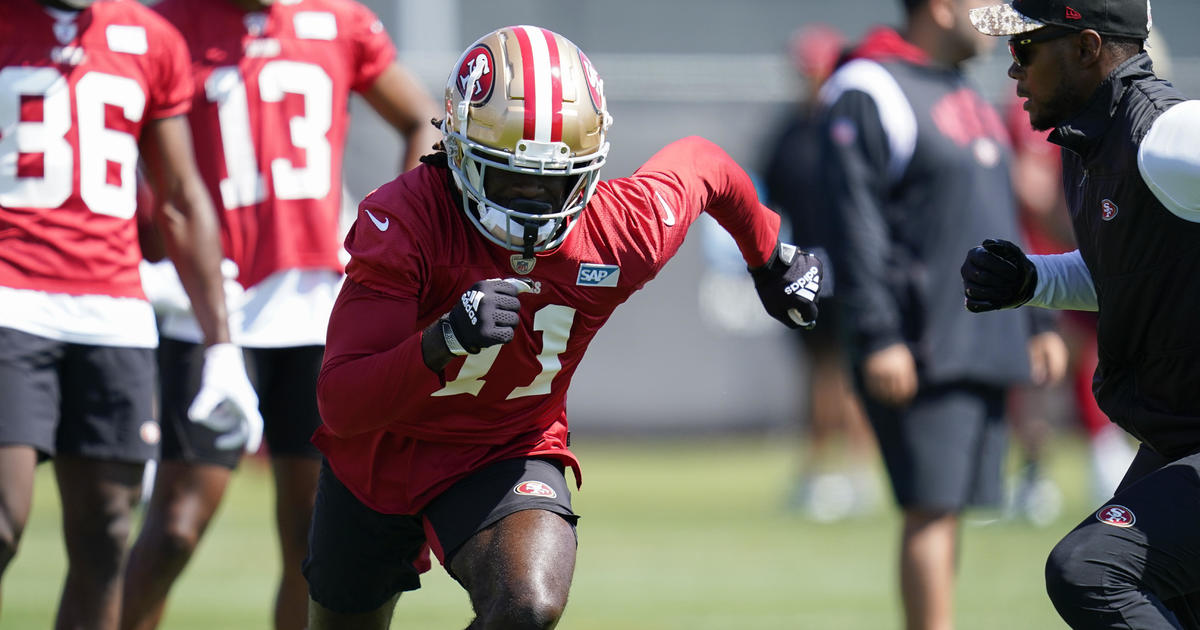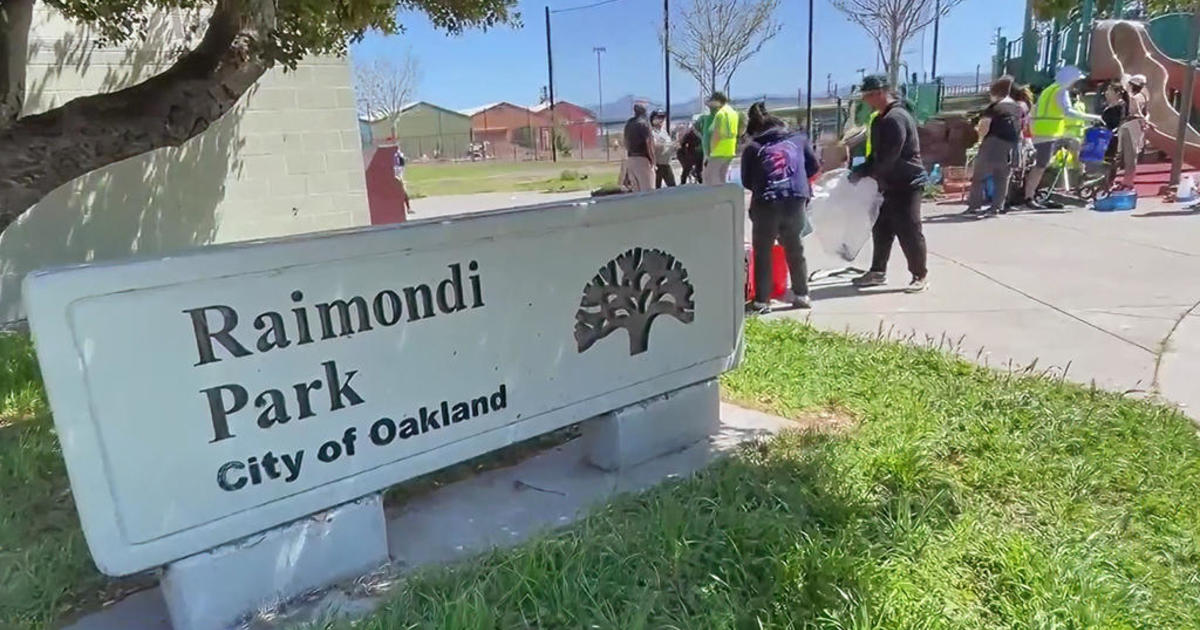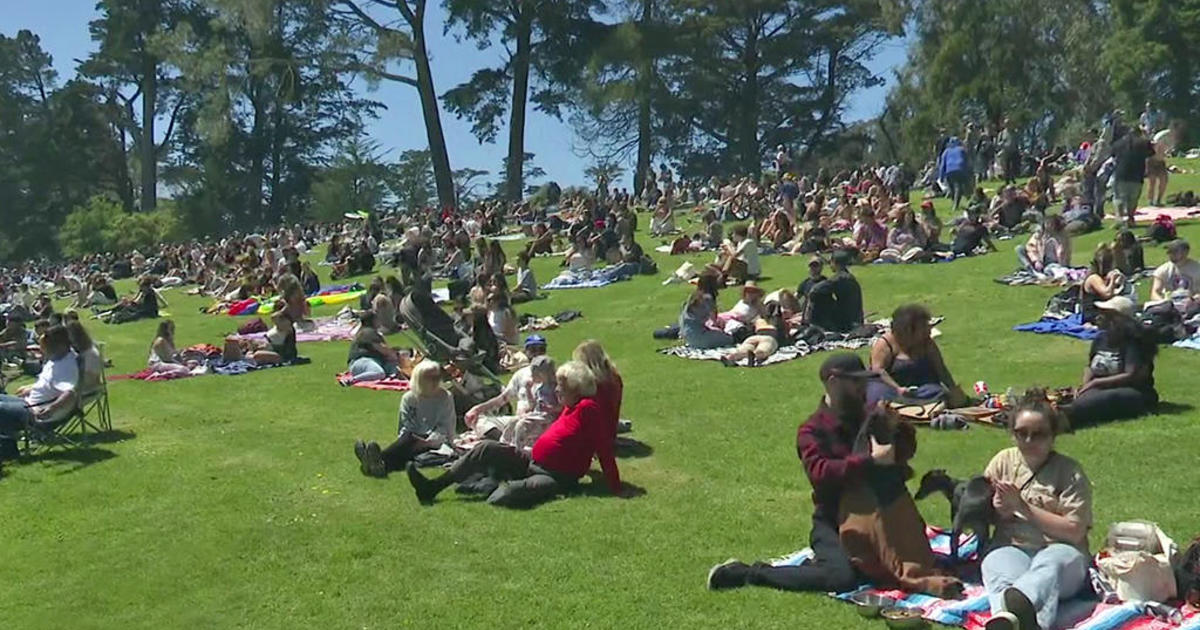Pfizer Says COVID-19 Vaccine Works In Kids Ages 5 To 11; Will Seek FDA Approval
SAN FRANCISCO (CBS SF/AP) -- There was good news Monday morning for San Francisco Bay Area parents worried about the safety of their children from COVID-19 in the classroom. Pfizer says its vaccine works for children ages 5 to 11 and will seek FDA approval to begin administering the shots.
Monday's announcement comes as Bay Area school districts are wrestling with whether or not to require proof of vaccination for teachers, staff and in-class students.
On Tuesday, the West Contra Costa Unified School District board will consider a resolution calling for a vaccination mandate to be issued for the district which serves more than 28,000 students in Richmond, El Cerrito, Hercules, Pinole, San Pablo and several unincorporated areas.
On Wednesday, the Oakland Unified School Board was expected to take up a similar measure covering its nearly 50,000 students.
Los Angeles — the second largest school district in the country — and Culver City have already began requiring shots for eligible students.
The vaccine made by Pfizer and its German partner BioNTech already is available for anyone 12 and older. But with kids now back in school and the extra-contagious delta variant causing a huge jump in pediatric infections, many parents are anxiously awaiting vaccinations for their younger children.
For elementary school-aged kids, Pfizer tested a much lower dose — a third of the amount that's in each shot given now. Yet after their second dose, children ages 5 to 11 developed coronavirus-fighting antibody levels just as strong as teenagers and young adults getting the regular-strength shots, Dr. Bill Gruber, a Pfizer senior vice president, told The Associated Press.
The kid dosage also proved safe, with similar or fewer temporary side effects — such as sore arms, fever or achiness — that teens experience, he said.
"I think we really hit the sweet spot," said Gruber, who's also a pediatrician.
Gruber said the companies aim to apply to the Food and Drug Administration by the end of the month for emergency use in this age group, followed shortly afterward with applications to European and British regulators.
"There was a very deliberate decision by Pfizer and the FDA who advised Pfizer to go to a lower dose, so that's what gives me personally as the parent of an 11 year old, the security that they really adjudicated the dose that really maximizes safety," said UCSF infectious disease specialist Dr. Monica Gandhi.
Earlier this month, FDA chief Dr. Peter Marks told the AP that once Pfizer turns over its study results, his agency would evaluate the data "hopefully in a matter of weeks" to decide if the shots are safe and effective enough for younger kids.
An outside expert said scientists want to see more details but called the report encouraging.
"These topline results are very good news," said Dr. Jesse Goodman of Georgetown University, a former FDA vaccine chief. The level of immune response Pfizer reported "appears likely to be protective."
Dr. George Rutherford at UCSF, addressed parents' fears about long-term effects of the vaccine for younger children.
"These vaccines are not incorporated into DNA. They don't reproduce by getting into the DNA. The reproduce in the cytoplasm of the cell, the outer part of the cell. And they have very short lifespans," said Rutherford. "Get your children vaccinated as soon as you can. It's highly protective. This is not a benign disease in children, there's some really bad side effects. And the kinds of morbidity and mortality that we see from this disease are comparable to what we see in other diseases for which we vaccinate children."
'It's a little nerve-wracking because we're still trying to figure out how it affects us adults, but a big part of me, I am very eager because we aren't going to get back to normalcy until the kids start getting vaccinated and other people start jumping on board," said South Bay mother Kara Hawthorne.
San Jose resident Nam Ngo said a vaccine for his 8-year-old son would alleviate anxiety and worry, since he's been hospitalized several times due to asthma-related issues.
"It would take a significant stress off our chest knowing that he at least some sort of protection and he most likely wouldn't get hospitalized," said Ngo.
Many Western countries so far have vaccinated no younger than age 12, awaiting evidence of what's the right dose and that it works safely. Cuba last week began immunizing children as young as 2 with its homegrown vaccines and Chinese regulators have cleared two of its brands down to age 3.
While kids are at lower risk of severe illness or death than older people, more than 5 million children in the U.S. have tested positive for COVID-19 since the pandemic began and at least 460 have died, according to the American Academy of Pediatrics. Cases in children have risen as the delta variant swept through the country.
Kiet Do and Andria Borba contributed to this story.
© Copyright 2021 CBS Broadcasting Inc. All Rights Reserved. The Associated Press contributed to this report.



